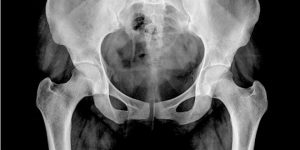
A Uranium-Free Method for Nuclear Medicine Imaging
A Uranium-Free Method for Nuclear Medicine Imaging
June 7, 2019
Breaking Israel News – Medical diagnostics were revolutionized in the last few decades by imaging technologies that allow physicians to look inside your body to find out what is wrong without having to open you up.
BGN Technologies, the technology transfer company of Ben-Gurion University (BGU) of the Negev, has introduced a novel method for producing radioisotopes for nuclear medicine used in imaging. The new technique makes possible simultaneous production of molybdenum-99 and other isotopes without the need for highly enriched, weapons-grade uranium. The method will be used in nuclear medicine and medical imaging technologies such as CT scan and PET-CT.
Developed by Dr. Alexander Tsechanski from BGU’s Faculty of Engineering Sciences, the new technique makes unnecessary the need for highly enriched uranium and a nuclear reactor. Nuclear medicine often necessitates the use of technetium-99m (Tc-99m) as the isotope for imaging, an unstable technetium isotope with a six-hour half-life; this requires onsite production.
Zafrir Levy, a senior vice president for business development, exact sciences and engineering at BGN Technologies, explains: “Technetium-99m is a metastable [stable] nuclear isomer of technetium-99 that is used in tens of millions of medical diagnostic procedures annually, making it the most commonly used medical radioisotope. The need for uranium and a nuclear reactor to produce this radioisotope is creating a shortage of this important substance. Tsechanski’s innovation offers a more feasible, cost-effective method, using cheaper electron accelerators, for generating Mo99/Tc-99m. We are currently looking for partners for further developing and commercializing this important invention.”




